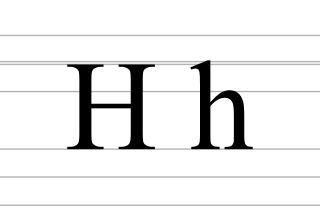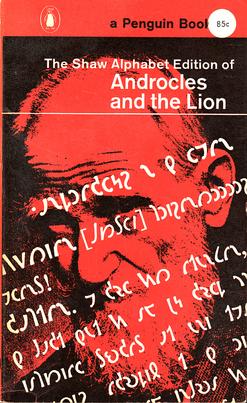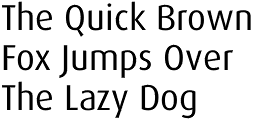Related Research Articles
The identity of the longest word in English depends on the definition of a word and of length.
English orthography is the writing system used to represent spoken English, allowing readers to connect the graphemes to sound and to meaning. It includes English's norms of spelling, hyphenation, capitalisation, word breaks, emphasis, and punctuation.

H, or h, is the eighth letter of the Latin alphabet, used in the modern English alphabet, including the alphabets of other western European languages and others worldwide. Its name in English is aitch, or regionally haitch.
The Klingon language is the constructed language spoken by a fictional alien race called the Klingons, in the Star Trek universe.

Y, or y, is the twenty-fifth and penultimate letter of the Latin alphabet, used in the modern English alphabet, the alphabets of other western European languages and others worldwide. According to some authorities, it is the sixth vowel letter of the English alphabet. Its name in English is wye, plural wyes.

The Shavian alphabet is a constructed alphabet conceived as a way to provide simple, phonemic orthography for the English language to replace the inefficiencies and difficulties of conventional spelling using the Latin alphabet. It was posthumously funded by and named after Irish playwright George Bernard Shaw.

The Russian alphabet is the script used to write the Russian language. It comes from the Cyrillic script, which was devised in the 9th century for the first Slavic literary language, Old Slavonic. Initially an old variant of the Bulgarian alphabet, it became used in the Kievan Rusʹ since the 10th century to write what would become the modern Russian language.
Scottish English is the set of varieties of the English language spoken in Scotland. The transregional, standardised variety is called Scottish Standard English or Standard Scottish English (SSE). Scottish Standard English may be defined as "the characteristic speech of the professional class [in Scotland] and the accepted norm in schools". IETF language tag for "Scottish Standard English" is en-scotland.
A phonemic orthography is an orthography in which the graphemes correspond to the language's phonemes. Natural languages rarely have perfectly phonemic orthographies; a high degree of grapheme–phoneme correspondence can be expected in orthographies based on alphabetic writing systems, but they differ in how complete this correspondence is. English orthography, for example, is alphabetic but highly nonphonemic; it was once mostly phonemic during the Middle English stage, when the modern spellings originated, but spoken English changed rapidly while the orthography was much more stable, resulting in the modern nonphonemic situation. On the contrary the Albanian, Serbian/Croatian/Bosnian/Montenegrin, Romanian, Italian, Turkish, Spanish, Finnish, Czech, Latvian, Esperanto, Korean and Swahili orthographic systems come much closer to being consistent phonemic representations.

Modern English is written with a Latin-script alphabet consisting of 26 letters, with each having both uppercase and lowercase forms. The word alphabet is a compound of alpha and beta, the names of the first two letters in the Greek alphabet. Old English was first written down using the Latin alphabet during the 7th century. During the centuries that followed, various letters entered or fell out of use. By the 16th century, the present set of 26 letters had largely stabilised:
German orthography is the orthography used in writing the German language, which is largely phonemic. However, it shows many instances of spellings that are historic or analogous to other spellings rather than phonemic. The pronunciation of almost every word can be derived from its spelling once the spelling rules are known, but the opposite is not generally the case.
A spelling pronunciation is the pronunciation of a word according to its spelling when this differs from a longstanding standard or traditional pronunciation. Words that are spelled with letters that were never pronounced or that were not pronounced for many generations or even hundreds of years have increasingly been pronounced as written, especially since the arrival of mandatory schooling and universal literacy.
A pronunciation respelling is a regular phonetic respelling of a word that has a standard spelling but whose pronunciation according to that spelling may be ambiguous, which is used to indicate the pronunciation of that word. Pronunciation respellings are sometimes seen in word dictionaries.
For centuries, there have been movements to reform the spelling of the English language. It seeks to change English orthography so that it is more consistent, matches pronunciation better, and follows the alphabetic principle. Common motives for spelling reform include quicker learning, cheaper learning, and making English more useful as an international auxiliary language.
In an alphabetic writing system, a silent letter is a letter that, in a particular word, does not correspond to any sound in the word's pronunciation. In linguistics, a silent letter is often symbolised with a null sign U+2205∅EMPTY SET. Null is an unpronounced or unwritten segment. The symbol resembles the Scandinavian letter Ø and other symbols.

Wasalu Muhammad Jaco, better known by his stage name Lupe Fiasco, is an American rapper and record producer. He rose to fame in 2006 following the success of his debut album, Lupe Fiasco's Food & Liquor. He also performs as the frontman of rock band Japanese Cartoon under his real name. As an entrepreneur, Fiasco was the chief executive officer of 1st and 15th Entertainment.

Portuguese orthography is based on the Latin alphabet and makes use of the acute accent, the circumflex accent, the grave accent, the tilde, and the cedilla to denote stress, vowel height, nasalization, and other sound changes. The diaeresis was abolished by the last Orthography Agreement. Accented letters and digraphs are not counted as separate characters for collation purposes.

SoundSpel is a regular and mostly phonemic English-language spelling reform proposal. It uses a 26-letter alphabet that is fully compatible with QWERTY keyboards. Though SoundSpel was originally based on American English, it can represent dialectal pronunciation, including British English. With roots extending as far back as 1910 but largely complete by 1986, SoundSpel was developed "in response to the widely held conviction that English spelling is more complex than it needs to be." The American Literacy Council has endorsed the reform because anglophones can easily read it. Additionally, according to its proponents, "[SoundSpel] is fully compatible with traditional spelling and can be mixed with it in any proportion desired."
Diaeresis is a name for the two dots diacritical mark as used to indicate the separation of two distinct vowel letters in adjacent syllables when an instance of diaeresis occurs, so as to distinguish from a digraph or diphthong.
References
- 1 2 Zimmer, Ben (25 June 2010). "Ghoti". The New York Times . Retrieved 23 May 2019.
- 1 2 3 4 Zimmer, Ben (23 April 2008). ""Ghoti" before Shaw". Language Log . Retrieved 23 May 2019.
- ↑ The original letter is housed in the British Library.
- 1 2 Mayer, S. R. Townshend (October 1874). "Leigh Hunt and Charles Ollier". St. James's Magazine. p. 406.
- ↑ McHugh, Roland (24 February 2016). Annotations to Finnegans Wake. JHU Press. ISBN 9781421419077.
- ↑ Holroyd, Michael (1994). Bernard Shaw: Volume III: 1918–1950: The Lure of Fantasy. Random House. ISBN 0517130351.
- ↑ Scobbie, Jim. "What is "ghoti"?". Archived from the original on 25 February 2001. Retrieved 23 May 2019.
- ↑ "Klingon Language Institute" . Retrieved 23 May 2019.
- ↑ Teleplay by Stanley Ralph Ross, Story by Ed Self (19 October 1966). "An Egg Grows in Gotham". Batman. Season 2. Episode 13. Event occurs at 13 minutes. American Broadcasting Company . Retrieved 23 May 2019.[ dead YouTube link ]
- ↑ Kevelson, Morton (January 1986). "Speech Synthesizers for the Commodore Computers / Part II". Ahoy!. p. 32. Retrieved 23 May 2019.
- ↑ "Re: Spelling Bees". Archived from the original on 20 January 2013. Retrieved 23 May 2019.
- ↑ @YuGiOh_TCG (20 June 2022). "The Power of the Elements Premiere! Event is coming up July 30-31! You can be entered into a drawing to win exclusive prizes, like this Ultra Rare copy of Ghoti of the Deep Beyond (while supplies last)!" (Tweet) – via Twitter.
- ↑ Hoffman, Tim (24 June 2022). "ALBUM REVIEW: Lupe Fiasco makes a salient statement with 'Drill Music In Zion'". RIFF Magazine. Retrieved 8 July 2022.
- ↑ NILFRUITS (9 June 2018). "∴flower 『 HUNGRY NICOLE 』【Official】". YouTube. Retrieved 11 March 2024.